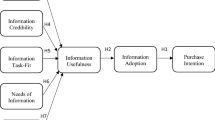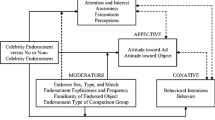Abstract
Technological advances and increased consumer power has given rise to the emergence of open source (OS) brands. Although consumers play a significant role in determining how the brand will be perceived by others, this does not, however, mean that brand mangers do not have a role to play in guiding and shaping OS brands. Numerous studies have shown the importance of developing a brand personality that resonates with brand users. This article extends the understanding of the OS brand concept by developing and implementing an OS ranking scale, and thereafter analysing the brand personality of the highest ranked OS brands. Quantitative descriptive research was employed, using content analysis of the brands’ websites. The research found that although OS brands have their own distinctive personalities, the personality trait of sincerity underlies the brand personality of OS brands. The article provides academics and practitioners with a tool to evaluate the extent to which a brand may be classified as OS and, following the determination of the brand personality of the 10 most highly ranked OS brands, provides guidelines on how brand custodians can guide the personality of their brands in an environment in which consumers increasingly influence brand communication.



Similar content being viewed by others
References
Aaker, J. (1997) Dimensions of brand personality. Journal of Marketing Research 34 (3): 347–356.
Aaker, J. and Fournier, S. (1995) A brand as a character, a partner and a person: Three perspectives on the question of brand personality. In: F.R. Kardes and S. Sujan (eds.) Advances in Consumer Research, Vol. 22. Provo, UT: Association for Consumer Resarch, pp. 391–395.
Abimbola, T. (2009) Brand, organisation identity and reputation: Bold approaches to big challenges. Journal of Brand Management 16 (4): 219–220.
Arora, R. and Stoner, C. (2009) A mixed method approach to understanding brand personality. Journal of Product & Brand Management 18 (4): 272–228.
Azoulay, A. and Kapferer, J. (2003) Do brand personality scales really measure brand personality? Journal of Brand Management 11 (2): 143–155.
Black, J. (2003) The wild world of ‘open-source media’. Business Week Online 11 June, http://www.businessweek.com/technology/content/jun2003/tc20030610_7159_tc104.htm, accessed 20 October 2011.
Bosman, J. (2006) Chevy tries a write-your-own-ad approach and the potshots fly. New York Times 4 April, http://www.nytimes.com/2006/04/04/business/media/04adco.html, accessed 22 September 2011.
Casaoló, L.V., Flavián, C. and Gruialíu, M. (2010) Relationship quality, community protection and brand loyalty in virtual communities: Evidence from free software communities. International Journal of Information Management 30 (4): 357–367.
Chakrabarti, R., Berthon, P., Watson, R. and Pitt, L. (2007) Quality management in business relationships: The role of brands in an open source environment. Total Quality Management 18 (8): 947–955.
Cromie, J.G. and Ewing, M.T. (2009) The rejection of brand hegemony. Journal of Business Research 62 (2): 218–230.
Dahlander, L. and Magnusson, M. (2008) How do firms make use of open source communities? Long Range Planning 41 (6): 629–649.
Davies, G., Chun, R. and da Silva, R. (2001) The personification metaphor as a measurement approach for reputation. Corporate Reputation Review 42 (2): 113–127.
Etgar, M. (2008) A descriptive model of the consumer co-production process. Journal of the Academy of Marketing Science 36 (1): 97–108.
Ferguson, C. (2005) How Linux could overthrow Microsoft. Technology Review June: 64–69.
Fournier, S. and Avery, G. (2011) The uninvited brand. Business Horizons 54 (3): 193–201.
Freling, T. and Forbes, L. (2005) An empirical analysis of the brand personality effect. The Journal of Product and Brand Management 14 (7): 404–413.
Geuens, M., Weijters, B. and De Wulf, K. (2009) A new measure of brand personality. International Journal of Research in Marketing 26 (2): 97–107.
Inman, J., Shankar, V. and Ferraro, R. (2004) The roles of channel-category associations and geodemographics in channel patronage. Journal of Marketing 68 (2): 51–71.
Ives, N. (2004) Unauthorized campaigns used by unauthorised creators become a trend. New York Times 23 December.
Johar, G., Sengupta, J. and Aaker, J. (2005) Two roads to updating brand personality impressions: Trait versus evaluative inferencing. Journal of Marketing Research 42 (4): 458–469.
Lin, L.-Y. (2010) The relationship of consumer personality trait, brand personality and brand loyalty: An empirical study of toys and video games buyers. Journal of Product and Brand Management 19 (1): 4–17.
McAlexander, J., Schouten, J. and Koenig, H. (2002) Building brand community. Journal of Marketing 66 (1): 38–54.
Morrissey, B. (2005) Agencies map out new creative avenues online. Adweek 46 (33): 10.
Müller, B. and Chandon, J.L. (2003) The impact of visiting a brand website on brand personality. Electronic Markets 13 (3): 210–221.
Muniz, A. and O'Guinn, T. (2001) Brand community. Journal of Consumer Research 27 (4): 412–432.
Muniz, A. and Schau, H. (2007) Vigilante marketing and consumer-created communications. Journal of Advertising 36 (3): 35–50.
Neisser, D. (2006) The new gold rush: Viral content. Brandweek 47 (5): 20.
Okazaki, S. (2006) Excitement or sophistication? A preliminary exploration of on-line brand personalities. International Marketing Review 23 (3): 279–303.
Okazaki, S. and Rivas, J.A. (2002) A content analysis of multinationals' Web communication strategies: Cross-cultural research framework and pre-testing. Internet Research 12 (5): 380–390.
Opoku, R., Abratt, R., Bendixen, M. and Pitt, L. (2007) Communicating brand personality: Are the websites doing the talking for food SME's? Qualitative Market Research: An International Journal 10 (4): 362–374.
Opoku, R., Abratt, R. and Pitt, L. (2006) Communicating brand personality: Are the websites doing the talking for the top South African business schools? Journal of Brand Management 14 (1–2): 20–39.
Payne, A., Storbacka, K. and Frow, P. (2008) Managing the co-creation of value. Journal of the Academy of Marketing Science 36 (1): 83–96.
Payne, A., Storbacka, K., Frow, P. and Knox, S. (2009) Co-creating brands: Diagnosing and designing the relationship experience. Journal of Business Research 62 (3): 379–389.
Pitt, L., Opoku, R., Hultman, M., Abratt, R. and Spyropoulou, S. (2007) What I say about myself: Communication of brand personality by African countries. Tourism Management 28 (3): 835–844.
Pitt, L., Watson, P., Berthon, P., Wynn, D. and Zinkhan, G. (2006) The penguin's window: Corporate brands from an open-source perspective. Journal of the Academy of Marketing Science 34 (2): 115–127.
Poddar, A., Donthu, N. and Wei, Y. (2009) Web site customer orientations, web site quality and purchase intentions: The role of web site personality. Journal of Business Research 62 (4): 441–450.
Schau, H.J. and Muniz Jr., A.M. (2002) Brand communities and personal identities: Negotiations in cyberspace. Advances in Consumer Research 29: 344–349.
Schouten, J.W. and McAlexander, J.H. (1995) Subcultures of consumption: an ethnography of the new bikers. Journal of Consumer Research 22 (1): 43–61.
Smith, A.C.T., Graetz, B.R. and Westerbeek, H.M. (2006) Brand personality in a membership-based organisation. International Journal of Non Profit and Voluntary Sector Marketing 11 (3): 251–266.
Swaminathan, V., Stilley, K. and Ahluwalia, R. (2009) When brand personality matters: The moderating role of attachment styles. Journal of Consumer Research 35 (6): 985–1002.
Valette-Florence, P., Guizani, H. and Merunka, D. (2011) The impact of brand personality and sales promotions on brand equity. Journal of Business Research 6 (1): 24–25.
Vargo, S. and Lusch, R. (2008) Service-dominant logic: Continuing the evolution. Journal of the Academy of Marketing Science 36 (1): 1–10.
Von Hippel, E. and von Krogh, G. (2003) Open source software and the ‘Private-Collective’ innovation model: Issues for organisation science. Organisation Science 14 (2): 209–226.
Xie, C., Bagozzi, R. and Troye, S. (2008) Trying to prosume: Toward a theory of consumers as co-creators of value. Journal of the Academy of Marketing Science 36 (1): 109–122.
Author information
Authors and Affiliations
Corresponding author
Rights and permissions
About this article
Cite this article
Haarhoff, G., Kleyn, N. Open source brands and their online brand personality. J Brand Manag 20, 104–114 (2012). https://doi.org/10.1057/bm.2012.43
Received:
Revised:
Published:
Issue Date:
DOI: https://doi.org/10.1057/bm.2012.43




